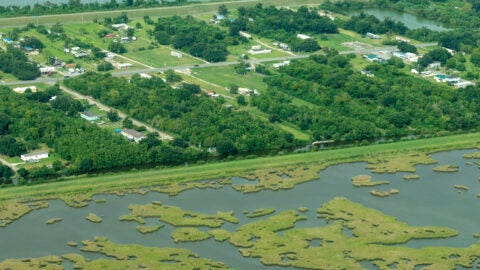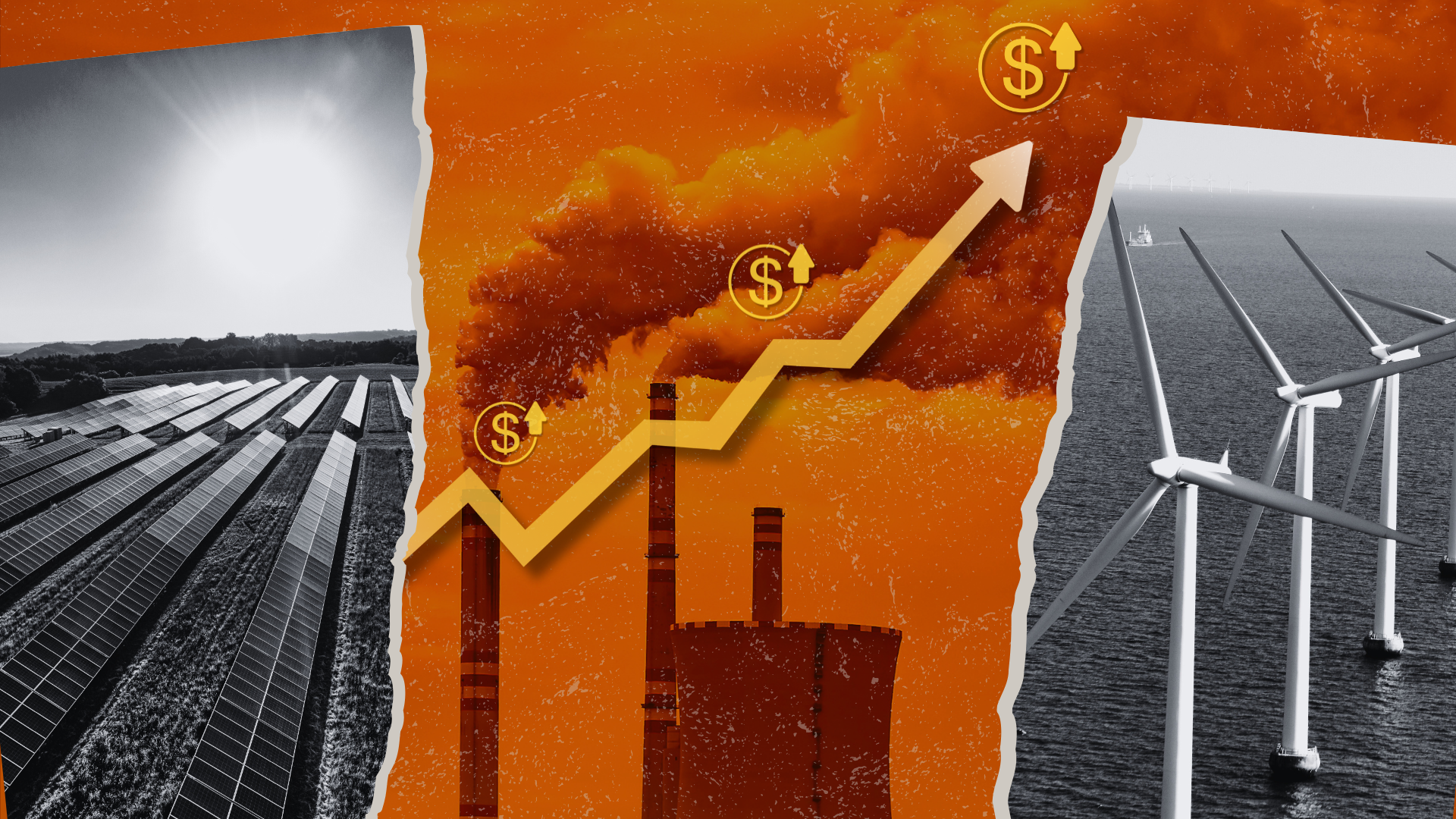Less Science, More Cost: Why the Misguided “Secret Science” Bill Is Bad Policy
 It’s a good idea for the U.S. Environmental Protection Agency (EPA) to rely on the best, most up-to-date science in making its decisions.
It’s a good idea for the U.S. Environmental Protection Agency (EPA) to rely on the best, most up-to-date science in making its decisions.
Seems like a fairly basic point — but recent legislation aims to thwart EPA’s ability to do so.
Rep. Lamar Smith’s (R-TX) “Secret Science Reform Act” will reportedly be back again this year and soon be on the move. The bill would prohibit EPA from finalizing an action unless “all scientific and technical information relied on to support” the action is “publicly available online in a manner that is sufficient for independent analysis and substantial reproduction of research results.”
Like so many misleadingly-named bills of the past, this bill tries to sound like common sense – but in fact, it would do great damage to human health and the environment, as well as to a predictable regulatory environment for business.
A Blindfolded EPA
Here’s the first problem: to make informed decisions, some of the data EPA needs to use can’t be made public without doing damage to real people or to businesses.
Almost all of EPA’s work touches on issues of human health — relying, for example, on research that uses health records of asthma sufferers and their asthma attacks to see if they are associated with air pollution.
Data that involve private medical records of individual patients cannot – ethically or legally – be made fully public.
Here’s another example: businesses sometimes claim that information about their operations is legally protected from public release because it is “confidential business information.”
But under this legislation, EPA would be barred from relying on any study or any analysis unless they made all the underlying information publicly available.
What would be the real-world result for the safety of our air and water and the products we use?
Under this legislation, EPA decision-making would grind to a halt. For instance:
- EPA would no longer be able to establish limits on emissions of hazardous air pollution into our air if a business claimed that any of the information EPA used to create the Clean Air Act protection was “confidential business information” that could not be released.
- EPA could no longer issue national air quality standards that rely on studies about the health impacts of pollution if the studies relied in any part on confidential patient health data.
- EPA could not make decisions about the safety of chemicals because such decisions would necessarily rely on information representing industry trade secrets.
EPA properly relies on peer-reviewed scientific research, and industry studies and data, to inform its efforts to protect public health and the environment. Particularly for health research, studies often involve confidential data that researchers are prohibited by law from disclosing. This legislation would force EPA to pretend that none of this valuable research exists when making substantial agency decisions.
The end result? Our health and environment is put at risk.
Congressional Budget Office Says It Will Cost Hundreds of Millions of Dollars to Implement
Here’s a second problem: even setting aside the enormous confidentiality problems in this legislation, it would be extremely costly to implement.
The “Secret Science” bill authorizes just $1 million in expenditures per year. But the Congressional Budget Office (CBO) estimates that implementing this bill would cost approximately $1 billion to implement over the next four years — and that’s their middle estimate.
CBO estimates that EPA relies on about 50,000 scientific studies every year to accomplish its mission — so providing public online access to all of the underlying data and information is an expensive proposition.
Alternatively, if EPA presses ahead on the basis of a smaller number of studies, EPA protections would be less well-informed and may not reflect the latest science. They could also be inaccurate or incomplete — and thus more vulnerable to legal challenges that would delay the implementation of important public health protections or timely decisions affecting industry operations.
CBO’s own predicted result?
- “CBO expects that EPA would modify its practices, at least to some extent, and would base its future work on fewer scientific studies, and especially those studies that have easily accessible or transparent data.”
- “On balance — recognizing the significant uncertainty regarding EPA’s potential actions under the bill — CBO expects that the agency would probably cut the number of studies it relies on by about one-half … CBO estimates the incremental costs to the agency would be around $250 million a year initially, subject to appropriation of the necessary amounts. In our assessment that figure lies near the middle of a broad range of possible outcomes.”
- “If EPA continued to rely on as many scientific studies as it has used in recent years, while increasing the collection and dissemination of all the technical information used in such studies as directed by H.R. 1030, then implementing the bill would cost at least several hundred million dollars a year.”
The challenges of meeting these huge expenses are enormous. They’re even more daunting in light of simultaneous efforts by EPA’s opponents in Congress to dramatically curtail the agency’s budget.
Bedrock Safeguards Subject to Delay and Uncertainty
Here’s a third problem: the bill would prohibit EPA from finalizing an action unless all information relied on is “publicly available in a manner that is sufficient for independent analysis and substantial reproduction of research results.” Yet for many key health studies, it could take years — decades even — to “reproduce” some key research.
Some of the most rigorous, crucial health studies are based on health data that is collected over many years — for example, studies that follow a group of people over time to understand how their health is affected by environmental conditions. Such data is how we recognized that smoking causes cancer, to cite just one example.
By their very nature, results from such “longitudinal studies,” which may involve thousands of people, cannot be readily and rapidly “reproduced” as a laboratory study on mice might be. Yet such studies, when carefully designed and executed, can be among the most powerful in shedding light on how pollution impacts our health.
The troublingly vague language in this bill could be interpreted to mean that research results can only be used if time has been allowed for reproduction of research results. This presents EPA with an array of bad options: incurring enormous delay and expense to reproduce even the most sound, rigorous studies, even when other research already supports their findings; moving ahead on the basis of limited science and ignoring crucial health insights from the latest research and from longitudinal studies; or moving ahead with the benefit of insights from these studies—but facing needless uncertainty and litigation risk due to the troublingly vague language in the bill. Whichever way, EPA’s ability to protect human health and the environment would be undermined.
Best Available Science
Why would anyone support this legislation that would force EPA to rely on less science at more cost to taxpayers?
Well, it would benefit big polluters who would be handed more ways to pick apart EPA safeguards in court — or stop their creation in the first place. But for the rest of America’s businesses, it could increase uncertainty and economic challenges, because EPA would be hindered in using the industry’s own information in making decisions. And for American families, who would be put at risk by less informed safeguards, the “Secret Science” bill is a bad idea for science and for public health.
It’s just plain wrong to suggest that EPA relies on “secret” data. EPA depends on the best, most up-to-date science – including university research and industry analyses that are available to the public, but that rely on confidential data and information properly protected from disclosure under the law and under common decency.
Update: The new version of the bill has been introduced, with very small changes, under a new title – the Honest and Open New EPA Science Treatment Act (HONEST Act)












